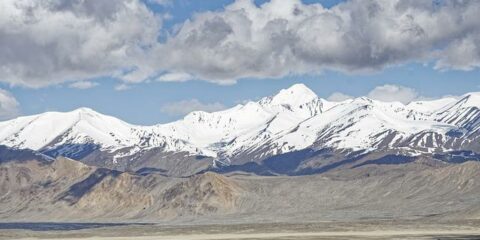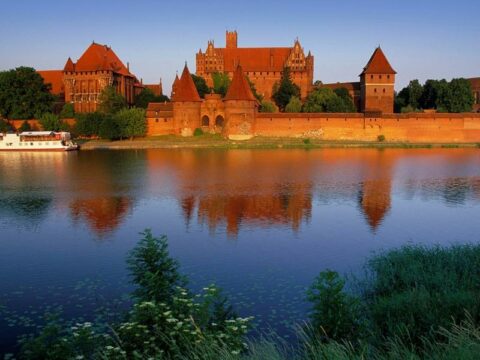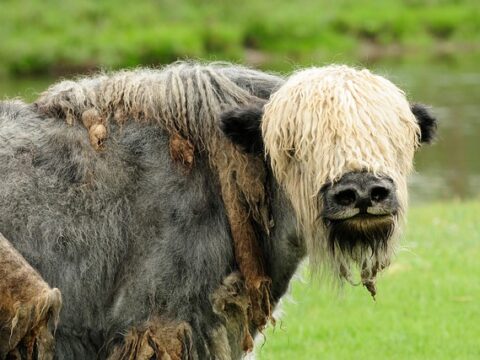| order | name | location | introduce |
| 1 | Andes | West Bank of South America | The Andes Mountains (Quechua: Andes; chicchua: Antis) belong to the Cordillera mountains, also known as the Andes mountains or the Andes mountains. They are located on the West Bank of South America, with a total length of more than 8900 kilometers from north to south. They are the longest mountains in the world. The Andes Mountains form a continuous barrier from the southern tip of South America to the northernmost Caribbean coast. The Andes Mountains separate the narrow west coast from the rest of the continent, which is one of the important topographic features of the earth. It has a profound impact on the living conditions of the mountains themselves and their surrounding areas. |
| 2 | Rocky Mountains | Riad River in Canada to Rio Grande River in New Mexico | The Rocky Mountains, also translated as the Rocky Mountains, are the backbone of the Cordillera mountain system in North America. They are composed of many small mountains and are called the “backbone” of North America. The main mountains range from British Columbia, Canada to New Mexico in the southwest of the United States. They run more than 4800 kilometers from north to south, and are vast and lack vegetation. Its name is derived from the name of an Indian tribe. The towering Rocky Mountains stretch thousands of kilometers from north to south. The entire Rocky Mountains consist of many small mountains, of which 39 have names. With the exception of the St. Lawrence River, almost all major rivers in North America originate from the Rocky Mountains and are an important watershed of the continent. |
| 3 | Transantarctic Mountains | From Victoria to the Weddell Sea | It crosses the Antarctic mountains, extends from Victoria to the Weddell Sea, and divides Antarctica into Southeast Antarctica and southwest Antarctica, with a total length of 3500 kilometers. It is one of the three main mountains on the Antarctic continent. The mountain range divides Antarctica into Southeast Antarctica and southwest Antarctica. The average altitude is 4000 meters. The branches of the mountains include the Prince Albert mountains, etc. |
| 4 | The Appalachian Mountains | Eastern North America | The Appalachian Mountains are located in the east of the United States and the huge mountain system in the east of North America. They are the general name of many mountains in the east of North America, also known as the Appalachian highlands or the Appalachian Mountain system. It stretches from Newfoundland and Labrador in Canada to the east of North America and ends in the middle of Alabama in the south. It has a total length of nearly 3200 kilometers and a width of 130 ~ 560 kilometers, with a northeast-southwest trend. A natural barrier is formed between the eastern coastal zone and the vast lowlands within the continent, which plays a vital role in the colonization and development of the continent. The first 13 colonies of Britain were established in the narrow strip east of the Appalachian Mountains, starting from New Hampshire in the north and ending in Georgia in the South. |
| 5 | The Great Divide Mountains | North of NSW is roughly parallel to the coastline | The great watershed is the general name of mountains and plateaus in the north. It is located in the north of New South Wales and is roughly parallel to the coastline. From the Cape York Peninsula to Victoria, the eastern slope of the mountains is steep, with rich precipitation and a humid climate; The west slope is gentle, in the leeward position, and the climate is dry. |
| 6 | Tianshan mountains | Central Asia | Tianshan scenic spot is located on the north slope of East Tianshan Mountain, starting from Hanqi Valley in the East, songshutang in the west, Tianshan temple in the South, and Mingsha mountain in the north. It covers a total area of 120 square kilometers and is about 70 kilometers away from Hami City. There is a provincial road (i.e. Beixin road of the Silk Road) leading to it, with convenient transportation and communication. [1] Tianshan Mountains, a huge mountain range across Xinjiang, have pleasant scenery. At the same time, they are also one of the mountains often mentioned in Chinese traditional novels |
| 7 | Ural Mountains | The dividing line between Asia and Europe | The Ural Mountains, stretching more than 2000 kilometers from the baidalaz Bay in the Kara Sea of the Arctic Ocean in the north to the Kazakh grassland in the south, are the dividing line between Europe and Asia, between the Eastern European Plain and the Siberian plain. From north to south, the Ural Mountains are divided into five sections: polar, sub-polar Ural Mountains, and northern, central, and Southern Ural Mountains. The average altitude is 500 ~ 1200m; The people’s peak at 1894 meters in the sub-polar region is the highest peak of the Ural Mountains. The mountain range is 40 ~ 150 kilometers wide. The middle section is low and flat, which is an important passage between Europe and Asia. The western slope of the Ural Mountains is gentle and the eastern slope is steep. There are obvious differences in the distribution of mineral resources, animals, and plants on both sides of the mountain. The Ural Mountains are also the watershed of the Volga River, the Ural River, and the eastern slope of the Ob River Basin. |
| 8 | Kunlun Mountains | China’s Xinjiang borders with Qinghai and Tibet | Kunlun Mountains (Kunlun Mountain), also known as Kunlun Xu, is the first sacred mountain in China, the mountain of ten thousand ancestors, Kunlun mound or jade mountain. It is a large mountain system in Central Asia and the backbone of the mountain system in Western China. The mountain range starts from the east of Pamir Plateau in the west, crosses between Xinjiang and Tibet, and extends to Qinghai. It has a total length of about 2500 kilometers, an average altitude of 5500-6000 meters, a width of 130-200 kilometers, narrow in the West and wide in the East, with a total area of more than 500000 square kilometers. Kunlun Mountain has a prominent position as “the ancestor of ten thousand mountains” in the cultural history of the Chinese nation. The ancients called Kunlun mountain the “ancestor of the dragon vein” of China. |
| 9 | Himalayas | Between China and India and other countries, the southern summit of the Qinghai Tibet Plateau | Himalayas (Sanskrit: hima Alaya, meaning snow region), Tibetan means “hometown of snow”. Located on the southern edge of the Qinghai Tibet Plateau, it is the highest mountain in the world. It is the natural boundary mountain between the East Asian continent and the South Asian subcontinent, and also the natural border between China and India, Nepal, Bhutan, Pakistan, and other countries. It starts from the ninja Parbat peak in Kashmir (8125 meters above sea level) in the West and ends at the ninja Bawa peak (7782 meters above sea level) at the great bend of the Yarlung Zangbo River in the East. It is 2450 kilometers long and 200 ~ 350 kilometers wide. |
| 10 | The Atlas Mountains | Northwest Africa | Atlas mountain range is located in northwest Africa, with a total length of about 2400 kilometers, and a maximum width of 450 kilometers. It ranks among the top ten longest mountains, in the world. The mountain range spans Morocco, Algeria, and Tunisia (including Gibraltar Peninsula), and separates the southwest coast of the Mediterranean, from the Sahara desert. It is the most extensive fold fracture mountain area in Africa, and a part of the Alps. The geological changes of the tectonic belt in the Cenozoic Era prompted the formation of the Atlas Mountains. The system is like an elongated oval, and the uplifted Atlas Mountains are like a green barrier, forming a completely different natural environment on the southeast and northwest sides of the mountains. |
Study materials, for reference only, welcome comments.















